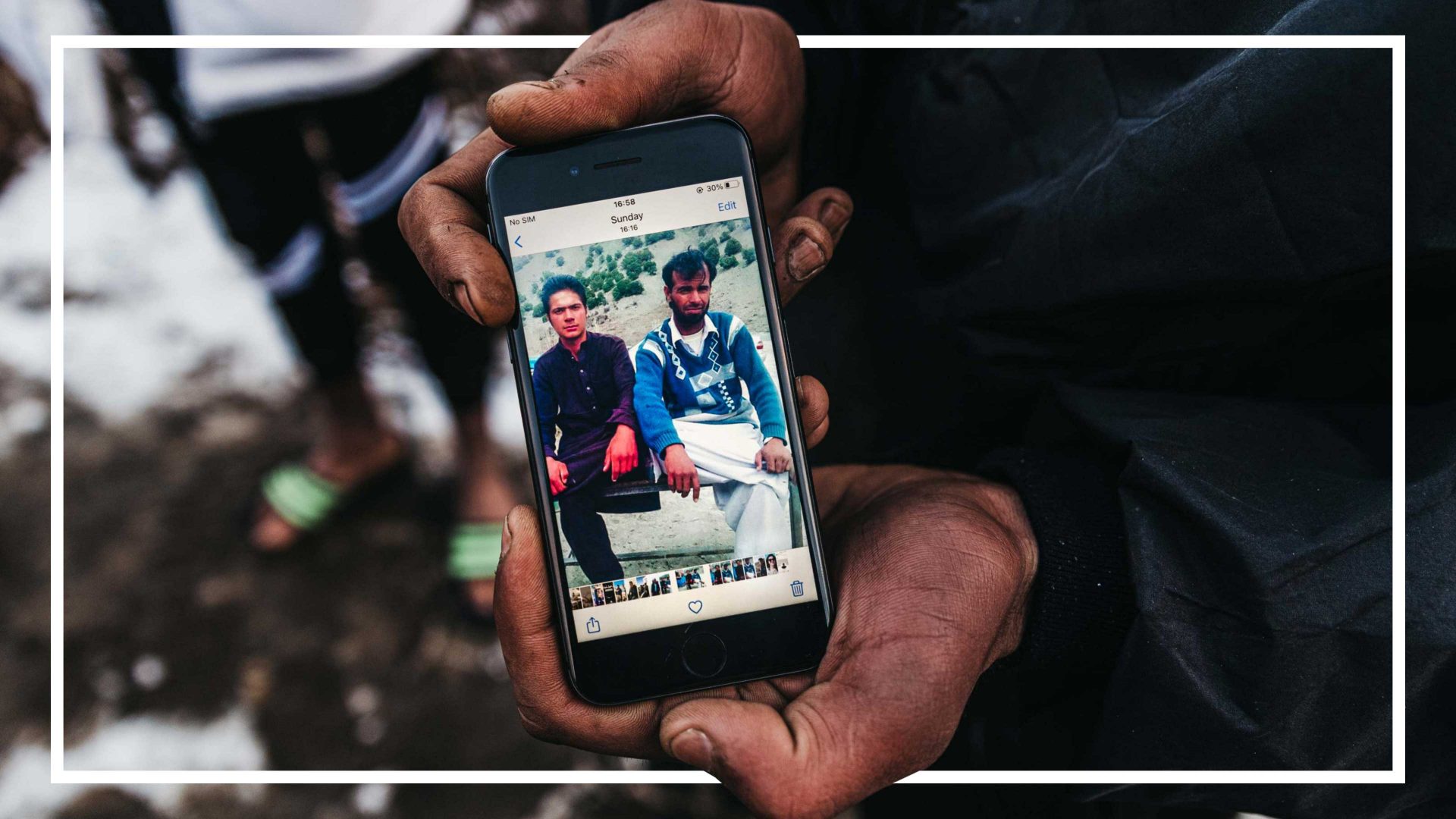NN 1, 2, and 3 died together, engulfed by the flames of a fire they had lit to stay warm in an abandoned farmhouse on the outskirts of Bihać, a Bosnian city near the western border with Croatia. “NN” stands for “No Name”.
Like thousands of migrants travelling along the Balkan Route since 2018, they sought shelter before making the final 20km journey to the Croatian border. Today, alongside another dozen NNs, these three faceless men are buried in a cemetery on a hill overlooking Bihać.
Asim Karabegović is a 60-year-old from Bihać who has been distributing essential goods to migrants arriving in the area. Known as “Baba Asim”, he began supporting them in Bihać six years ago, back when thousands of people were stuck in squats across the city. His grocery store, now closed, had become a gathering place where people could recharge their phones and find a moment of respite. Now he deals with the dead.
“Some were given what might be fictitious names, perhaps written on a tag the person was carrying when found,” Karabegović said. “We know nothing about them. Their families might be too poor to begin searching for their missing loved ones.”
“There are bodies that have been in the morgue for months.”
He paused beside a white tombstone that reads: “Abdulhamed Noori, 1987-2019, Herat, died in Bosnia-Herzegovina”. “His brother lives in Germany and arranged the burial,” Karabegović said. “There is a need to restore dignity to the other unknown individuals as well. This is why €9,500 has been paid to the cemetery management. By October 18, the wooden markers will be replaced by stone headstones.”
The funding for the work at the Bihać cemetery was provided by SOS Balkanroute, an Austrian association founded in the former Vučjak refugee camp during the winter of 2019. “Since then, we have supported local activists through donations,” says Petar Rosandić, the organisation’s founder. “We don’t want to act with a western white saviour mentality. The locals know how to proceed.”
SOS Balkan Route has supported the creation of three other cemeteries for migrants in Tuzla, Bijeljina, and Zvornik, Bosnian towns near Serbia. There, migrants die attempting to cross the Drina River. “It is the fault of European policies that people die at the borders. Passports from Afghanistan, Syria, and Pakistan are not accepted by the European Union,” said Nihad Suljić, another activist supported by SOS Balkan Route who lives in a village a few kilometres from the Serbian border.
“I am still looking for a two-month-old baby who disappeared six years ago. The river never gave him back,” he said. “Sometimes, families contact me because they have learned about what I do from social media, from the internet. They provide me with some details, and I ask the border police or the hospital if there is any matching information. In most cases, the bodies found are not claimed by anyone.”
“Today, I am in shock. A boat capsized in the Drina, and 11 people died,” said Suljić, his voice full of emotion. “The Serbian media called them irregular migrants. How can a nine-month-old baby be irregular?” That tragedy occurred between Bosnia and Serbia on the night of August 22.
“I am shocked. It is really difficult. I try to take care of myself, and I find the energy in my heart to go on because I want those who die here to have dignity. We don’t even know how many there are.”
According to some reports, at least 377 people have died or disappeared in the western Balkans since 2014, while trying to reach that dream called Europe. “I don’t want people to lose their lives like this in my country,” Suljić said, before returning to offer support to survivors of the latest disaster.
Alessia Manzi is a reporter specialising in migration and human rights



